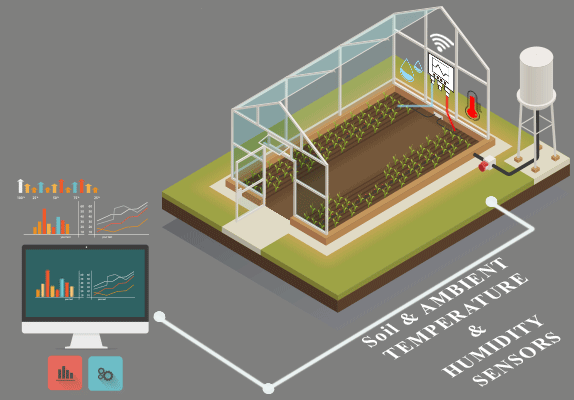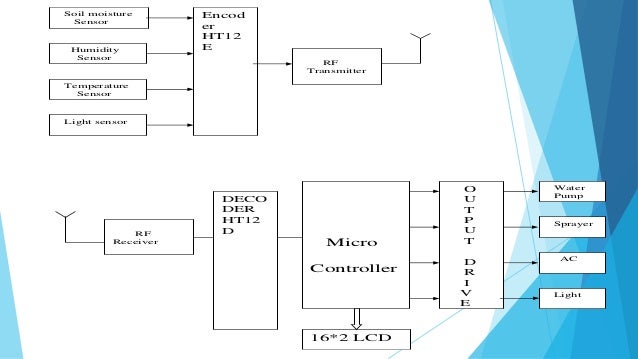Smart Greenhouse Circuit Diagram Adjusting the temperature and humidity can provide the best growth environment for the growth of indoor plants. The temperature and humidity sensors in the greenhouse provide you with accurate data. There are many options on the market to choose from, and in most cases, you will find a sensor that can check temperature and humidity at the same Benefits of Using Greenhouse Temperature and Humidity Sensors Greenhouse temperature and humidity sensors offer several benefits to growers: These sensors provide accurate monitoring of temperature and humidity levels in real-time, allowing for precise adjustments. This data helps growers to create optimal growing conditions, resulting in

Sensors are fundamental to the greenhouse monitoring system, providing real-time data on key environmental factors. These include: Temperature Sensors. Measure the internal temperature of the greenhouse to ensure it stays within the optimal range for plant growth. Humidity Sensors. Types of Sensors for Greenhouse Climate Monitoring An exploration of the different sensor technologies available: Temperature Sensors: Understanding resistance temperature detectors (RTDs) and thermocouples. Humidity Sensors: How capacitive sensors measure humidity accurately. Light Sensors: The different types of light sensors used in greenhouses. If you only want basic greenhouse temperature monitoring, then consider a digital min/max greenhouse thermometer. We recommend a digital greenhouse thermometer over analog as they will allow you to easily see the minimum and maximum temperatures over a 24-hour period, along with the current temperature and humidity.

What is a Greenhouse Monitoring System & How Does It Work? Circuit Diagram
The ThermoPro TP67B is a waterproof and cold resistant weather station for indoor and outdoor gardening. The station can be used to monitor temperature and humidity and predict the upcoming weather. The station can be synchronized with up to 3 rechargeable outdoor remote sensors. This kind of station doesn't use gps to locate the sensors.

At a minimum, check your greenhouse's temperature and humidity twice a day. Once in the morning and once in the evening. However, if you have a system that records these metrics continuously, it's wise to review the data at least once a day to spot any unusual trends. What's the Ideal Temperature and Humidity Level for Growing Tomatoes? Data Logging: Store temperature and humidity values on an SD card for later analysis. IoT Integration: Use an ESP8266 or ESP32 to send data to a cloud service for remote monitoring. This project provides a fundamental introduction to using sensors and displays with Arduino, allowing for further enhancements based on specific needs. Happy building! Greenhouse temperature and humidity sensors are essential for precise environmental monitoring in greenhouse operations. With numerous sensor options available on the market, it can be challenging to determine which one best fits your specific needs. This blog will compare the top greenhouse temperature and humidity sensors, highlighting their features and performance.
